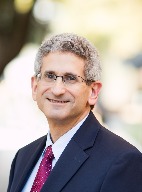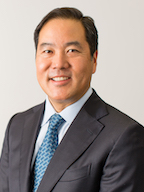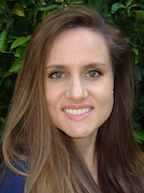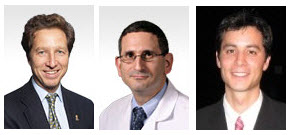
Michael Mann, M.D., FACS
- Professor of Surgery
- Division of Adult Cardiothoracic Surgery
Contact Information
500 Parnassus Ave., MUW 405, Box 0118
San Francisco, CA 94143
Tel: 415-514-0262
Email: Michael.Mann@ucsf.edu
Assistant: TBD
Thoracic Surgery and Oncology Clinic:
1600 Divisadero St., 4th Floor, Box 1674
San Francisco, CA 94115
Clinic:415-885-3882
Fax: 415-353-7151
Education
- 1981-85, Princeton University, A.B. , Chemistry
- 1985-91, Stanford University, MD , Medicine
Residencies
- Stanford University, Intern, Surgery
- Stanford University, Resident, General Surgery
- Brigham and Women's Hospital/Harvard Medical School, Resident, General Surgery
- University of California, San Francisco School of Medicine, Resident, Cardiothoracic Surgery
Fellowships
- Stanford University, Postdoctoral Fellow
- NIH Ruth L. Kirschstein National Research Service Award (NRSA) Research Training Fellowship, Cardiovascular Disease
Clinical Expertise
- Bronchioloalveolar Carcinoma (BAC)
- Carcinoid Tumors
- Chest Wall Tumors
- Esophageal Cancer
- Esophagectomy
- Lung Metastases
- Lung Transplantation
- Lung Volume Reduction Surgery
- Malignant Mesothelioma
- Mediastinal Masses
- Minimally Invasive Thoracic Surgery
- Non-Small Cell Lung Cancer
- Sarcomas
- Small-Cell Lung Cancer
- Tracheal Tumors
- Video-Assisted Thoracoscopic Surgery (VATS)
Research Interests
- Biomarkers and molecular profiling of metastasis
- Cardiovascular cell cycle biology
- Cardiovascular tissue engineering
- Clinical management of pulmonary metastasis
- Clinical management of sarcoma
- Evolving techniques for minimally invasive chest surgery
- Molecular and stem cell biology
- Molecular biology of metastasis
- Molecular biology of sarcomas
- Molecular genetics of heart disease
- Myocardial gene therapy
- Personalized Medicine
- Stem and progenitor cell transplantation for cardiovascular regeneration
- Therapeutic neovascularization for ischemic disease
Foreign Languages Spoken
- Mandarin
Biography
Michael Mann, M.D. joined the Thoracic Oncology Program in 2003 as a cardiothoracic surgeon. He received his M.D. from Stanford University and was awarded a Ruth L. Kirschstein National Research Service Award (NRSA) Research Training Fellowship through the NIH. Dr. Mann completed his General Surgery residency at Brigham and Women's Hospital/Harvard Medical School and his Cardiothoracic Surgery fellowship at UCSF.
His areas of expertise include lung cancer, mesothelioma, esophageal cancer, sarcoma and minimally invasive (video-assisted) thoracoscopic surgery. He also has expertise in performing cardiac procedures including coronary bypass, valve replacement, and aortic reconstruction.
Dr. Mann is widely admired for his teaching skills and is Assistant Director of the Thoracic Surgery Training Program. He holds memberships in numerous professional organizations including the Society of Thoracic Surgeons, American College of Surgeons, American Heart Association, American College of Cardiology and the Massachusetts Medical Society. Highly respected by his peers, Dr. Mann was named to the list of U.S. News "Top Doctors," which denotes the top 10% of physicians within a region practicing a given specialty. He has received numerous awards including the Cardiovascular Medicine Award for Excellence in Research, Dean's Award for Excellence in Research, and William Randolph Hearst Endowment for Young Investigators. Dr. Mann also serves as a scientific reviewer for numerous professional journals.
While on the faculty at Harvard Medical School, Dr. Mann founded the Cardiovascular Gene Therapy Group. He also invented several novel drug and delivery technologies and helped pioneer the application of gene regulation and vascular biology principles to the problem of coronary bypass graft failure. This led to one of the first large scale programs to evaluate the integration of molecular therapy into cardiac surgery.
Dr. Mann's research in genetic and molecular therapies has been widely recognized. He is currently an Associate Investigator in the UCSF Cardiovascular Research Institute. Dr. Mann also serves as a scientific advisor to the American Heart Association, the NIH Recombinant-DNA Advisory Committee, and to numerous device and pharmaceutical companies.
Research Overview
The Cardiothoracic Translational Research Laboratory is focused on turning a deeper understanding of the complex biology of cancer and heart failure into a new generation of cellular and molecular therapies. The lab's cancer research focuses on untangling the mystery of metastasis, a pathologic phenomenon that remains both poorly understood and still responsible for most cancer deaths. Heart failure, in turn, affects more than 5 million Americans and is already the greatest single economic burden in American health care, yet no existing therapies can either halt or reverse the disease process.
Michael J. Mann, M.D. is the Lab Director. His group is analyzing the molecular basis of metastasis to the lungs through careful analysis of human tumor specimens. Via comparison of the complex molecular responses of both primary cancers in their original locations and metastatic lesions in the same patients, they have begun to reveal a pattern of gene activity that may yield both more precise diagnosis of and revolutionary new therapies for metastatic disease.
The Cardiac wing of the Translational Research Lab has been studying the molecular underpinnings of heart failure over the past decade, and has made several fundamental observations regarding the balance of molecular signals that can push a heart either toward compensatory adaptation or relentless failure. By combining cutting edge reconstructive surgery with novel molecular intervention, the group hopes to provide a strong scientific foundation for the clinical development of unprecedented human therapies.
Research & Funding
- ERK Signaling and a Hybrid Surgical/Molecular Approach for Chronic Heart FailureSponsor: NIH/NHLBISponsor ID: R01HL083118Funding Period:Dec 2005-Apr 2017Principal Investigator
- The role of S1P signaling in surgical cardiac remodelingSponsor: NIH/NHLBISponsor ID: K08HL079239Funding Period:Apr 2006-Mar 2012Principal Investigator
- GROWTH FACTOR EXPRESSION IN VEIN GRAFT STENOSISSponsor: NIH/NHLBISponsor ID: F32HL008850Funding Period:Oct 1993-Jan 0001Principal Investigator
Publications
MOST RECENT PUBLICATIONS FROM A TOTAL OF 74
- Kristjansson AL, Mann MJ, Smith ML, Kogan SM, Lilly CL, James JE. Caffeine consumption and onset of alcohol use among early adolescents. Prev Med. 2022 10; 163:107208. View in PubMed
- Kratz JR, Li JZ, Tsui J, Lee JC, Ding VW, Rao AA, Mann MJ, Chan V, Combes AJ, Krummel MF, Jablons DM. Genetic and immunologic features of recurrent stage I lung adenocarcinoma. Sci Rep. 2021 12 08; 11(1):23690. View in PubMed
- Gupta AR, Woodard GA, Jablons DM, Mann MJ, Kratz JR. Improved outcomes and staging in non-small-cell lung cancer guided by a molecular assay. Future Oncol. 2021 Dec; 17(34):4785-4795. View in PubMed
- Woodard GA, Kratz JR, Haro G, Gubens MA, Blakely CM, Jones KD, Mann MJ, Jablons DM. Molecular Risk Stratification is Independent of EGFR Mutation Status in Identifying Early-Stage Non-Squamous Non-Small Cell Lung Cancer Patients at Risk for Recurrence and Likely to Benefit From Adjuvant Chemotherapy. Clin Lung Cancer. 2021 11; 22(6):587-595. View in PubMed
- Gavitt A. Woodard, Johannes R. Kratz, Greg Haro, Matthew A. Gubens, Collin M. Blakely, Kirk D. Jones, Michael J. Mann, David M. Jablons. Molecular risk stratification is independent of EGFR mutation status in identifying early stage non-squamous non-small cell lung cancer patients at risk for recurrence and likely to benefit from adjuvant chemotherapy. Clinical Lung Cancer. 2021 Aug 1. View in PubMed
- View All Publications
In the News
- Cancer Therapy Adviser - Sarah Elizabeth Richards - January 16, 2020"Looking at the genomic aspect of tumors allows us to get deeper than just looking at the microscopic appearance of the tumor and see how aggressive they are biologically," said Johannes Kratz, MD, FACS, director of minimally invasive and robotic thoracic surgery at the University of California San Francisco (UCSF) and coauthor of the study that was published in December 2019 in JAMA Network Open. "We can make a more accurate prediction of which patients will recur and better predict [...]

- UCSF Thoracic Oncology Program and Kratz Lab - Richard Barg - May 20, 2019Despite adoption of molecular biomarkers in the management of non-small cell lung cancer (NSCLC), the recently adopted 8th Edition staging utilized only clinicopathologic characteristics, and validated improvement in risk stratification of early-stage disease remains elusive. We therefore evaluated the integration of a clinically-validated molecular prognostic classifier into conventional staging.... Incorporation of a molecular prognostic classifier significantly improved identification of [...]
- UCSF Thoracic Oncology Program - Richard Barg - July 28, 2016While traditionally, standard treatment has consisted of surgery and radiation, sarcoma programs at higher volume centers of excellence such as UCSF, have found, with accumulated experience, that adding chemotherapy to surgery and radiation can be quite effective. Experienced Team of Specialists At UCSF Medical Center, sarcoma patients are treated by a highly experienced multidisciplinary team that includes orthopedic and general surgeons; medical and radiation oncologists; pathologists, [...]

- UCSF Thoracic Oncology Program - Richard Barg - November 07, 2014Building on earlier retrospective validation studies, a team of Thoracic Oncology Program researchers, demonstrated in a small prospective study the clinical utility of a 14-gene expression assay in stratifying risk among non-small cell lung cancer (NSCLC) patients. In a recently published paper in the journal Clinical Lung Cancer, lead author Gavitt Woodard, M.D., a general surgery research resident in the Thoracic Oncology Laboratory, and coauthors David M. Jablons, M.D. (pictured second) [...]


- UCSF Thoracic Oncology Program - November 01, 2012Building on their earlier work reported in The Lancet, two UCSF thoracic surgeons David M. Jablons, M.D. (left) and Michael Mann, M.D. (middle), and Johannes Kratz, M.D. (right) a former surgical resident in the Thoracic Oncology Lab, showed they could accurately stratify patients even with the earliest stage of lung cancer into groups at low-, intermediate- or high-risk of death based solely on the activity of 14 different genes found in their tumors. The group analyzed lung tumors of [...]

- UCSF Thoracic Oncology Program - January 26, 2012In the two largest clinical studies ever conducted on the molecular genetics of lung cancer, an international team, led by UCSF thoracic surgeons David M. Jablons, M.D. and Michael Mann, M.D., demonstrated that a 14-gene prognostic molecular assay better predicted the likelihood of death in early-stage lung cancer patients versus conventional staging guidelines. Johannes Kratz, M.D., a former surgical resident in the Thoracic Oncology Laboratory, helped spearhead the development of the [...]
